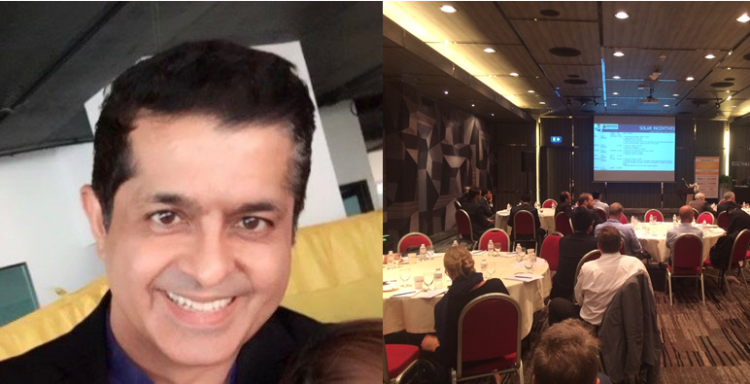
The 1MW Thailand project will include six technologies, all using separate SCADA systems, in order to compare performance. Credit: Tom kenning and Linkedin
Two companies are constructing a 1MW solar PV plant in Thailand using various combinations of technologies in order to set up a learning centre and advisory board to help solar developers across the Southeast Asia region.
Sam Yamdagni, chairman and chief executive of Thailand-based developer PS&S spoke to PV Tech at the Solar & Off-Grid Renewables Southeast Asia event in Bangkok. He said the solar industry is moving so fast that new benchmarks need to be created while current software packages for analysing PV systems can be “archaic”.
PS&S won the 1MW plant located in Singburi, near Ayutthaya, through Thailand’s 'lucky draw' system. After some hesitation about whether to build a plant of this small scale, PS&S realised it could create a learning centre out of the project.
It will include six technologies, all using separate SCADA systems, in order to compare performance. These include monocrystalline, bi-facial and thin-film modules, along with both fixed tilt mounting and trackers. It will also explore combinations of distributed and central MPPT tracking as well as comparing central and string inverters.
Manish Singhal, head, business development of Indian EPC firm Mahindra Susten, explained that Susten will set up the project and partner PS&S for conducting training and learning programmes.
Yamdagni added: “With all the changes of dynamics that are happening, it is essential for us to actually have a common benchmark [and] it is also very important in the industry that we don’t destroy engineering standards, because what’s really happening is the engineering standards are becoming worse.”
An advisory board of 10-12 people with various areas of expertise in Southeast Asia will also be created in order to have quarterly meetings on technology and the learning centre. The board will also discuss how best to dissipate best practice around the region. At least 30% of the board will be rotated each year to ensure more expertise coming in.
Yamdagni said the learning centre will be an “open platform” for other renewable energy firms to come in and see the results and make their own decisions about benchmarks and technology combinations. Furthermore, all data will be published in the internet.
The learning centre will conduct courses on engineering, operation and construction and there are plans to move into installer training for rooftop systems at the same location.
The plant is due to be complete before the end of the year and opening is likely to take place in Q1.
Speaking to delegates in Bangkok, Yamdagni said: “Anyone interested we will welcome you to participate with us.”